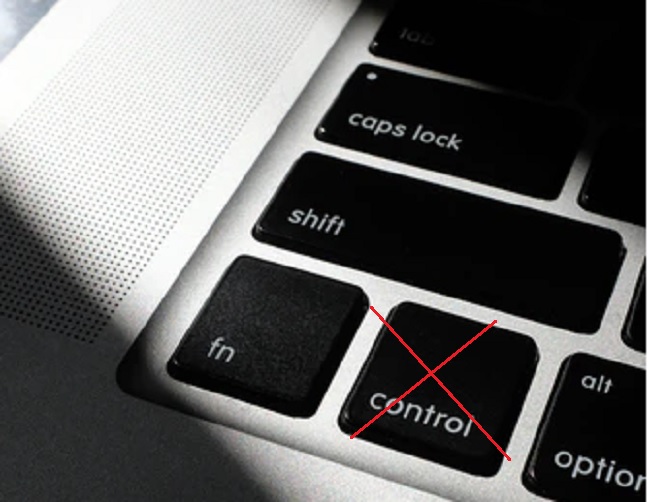It happens to everyone at some point, and no matter who you are, being ignored feels bad. Obviously, how bad you feel depends on each individual and who they’re being ignored by. However, you’re not just being overly sensitive if being ignored gets to you. It hurts. In a professional or work context, it can do more damage than just hurt your feelings, too.
Social Pain Is a Bit Like Physical Pain
There have been various neuroscience studies carried out that have drawn the connection between social pain and physical pain. It turns out that social pain – the type you feel through rejection or being ignored – shares the same neural pathways and activates the same parts of the brain as physical pain.

Physical pain is made up of two parts. There’s the sensory or physical experience of feeling the pain, but after that comes the emotional experience, whereby you may feel upset, demoralised or depressed by the physical pain. That depression can become a symptom of physical pain (especially chronic pain) but can cause physical pain in itself, creating a vicious circle.
That’s an extreme case, but the point is that there’s a whole load of evidence that social pain caused by things like being ignored is something that can physically affect you over time. It’s not to be taken lightly, and it’s an occurrence that you’ll want to avoid as much as possible.
A Biological Response
You may think being ignored should only feel bad if it’s a loved one ignoring you, but that’s not true. In fact, a virtual simulation can have the same effect. In one study of nearly 1,500 people from 62 countries, participants are one of three dots that toss a ball back and forth on a screen. Two dots are computer generated.

When the two computer-generated dots start leaving out the participant, the participant feels increasingly worse as they’re excluded. Participants said they felt like they were losing control. So even without any actual people involved, being ignored has a psychological effect.
Instead of it being an issue of confidence or sensitive emotions, it’s a biological response. Humans are social creatures. When you’re excluded, it immediately makes you feel alone. You feel a desire to be included, even if you don’t like the people excluding you. Being part of a group makes you feel safer and happier.
A Loss of Control
Another reason being ignored feels so bad is that you feel like you’ve lost control. Most people want to feel in control of themselves and their situation. When you’re being ignored, you lose control of the situation. It feels as if someone else has the upper hand. What’s worse is that you often don’t even know why someone’s ignoring you.

That lack of control makes you start to doubt yourself, especially in a work environment. If no one’s paying attention to you or replying to your emails, you may start to doubt why you’re even there or if you’re being ignored because you’re just not good at your job.
Ostracism Inflicts More Damage
Ostracism, or the act of being excluded and ignored, at work has been shown to cause more mental and physical damage than many types of harassment. Canadian researchers studied this and found 70 percent of participants had felt ostracized at some point, while just 48 percent had dealt with some form of harassment.

While most reported that someone who ignores you isn’t nearly as bad as someone who harasses you, turnover rates tell a different story. Three years after the initial study, the researchers followed up. They discovered that those who were ignored had a higher rate of health issues as a result and were more likely to have quit than those who had been harassed.
While harassment is a serious issue, workplaces are more likely to take action against the perpetrator. Ostracism is, ironically, usually ignored. The researchers concluded that being ignored can be considered a form of workplace harassment, leading to some of the same or sometimes worse psychological effects.
Dealing with Being Ignored
The first thing to remember is feeling bad is perfectly normal. The next step is to not take it personally. This is one of the hardest things to do. However, when you take it as a personal insult, you only hurt yourself more. In many cases, being excluded may not have anything to do with you personally. It could just be a matter of a co-worker being terrible at their job or a boss being too busy to reply to your emails.

Use the following questions and tips to push past those bad feelings and start feeling stronger and more confident:
- Ask why – Take charge and ask the person or people involved why they’re ignoring you. Ask respectfully versus taking an accusatory tone. It could be that people don’t realize what’s going on, and everyone can make a better effort to connect.
- Look at your own actions – This may be hard to admit to yourself, but is it possible you’re pushing people away? You may be giving off signals that you don’t want others around you, or you may be constantly interrupting others. Or, you rarely follow through when asked to do something.
- Does it hurt your job? – Does being ignored affect your job in any way? If not, the best thing to do is ignore what’s going on and focus on the job itself. Doing a great job helps you feel better about yourself. Plus, it’ll get the attention of your boss, which matters much more than your co-workers’ attention.
- Find other connections – Instead of letting this hurt your self worth, find other meaningful connections. Reach out to a friend or loved one. Try volunteer work or even find a new job.
The most important thing to do is show yourself some compassion. Remind yourself of your accomplishments, things you’re proud of, and why you’re good at your job. Others may try to ignore you, but don’t ignore yourself. That confidence and inner-strength becomes impossible to ignore when you focus more on yourself and what you can control versus trying to control how others feel about you.
